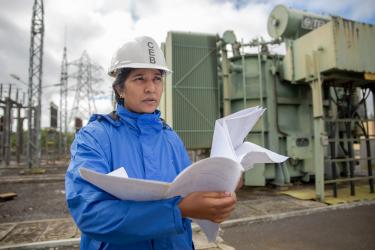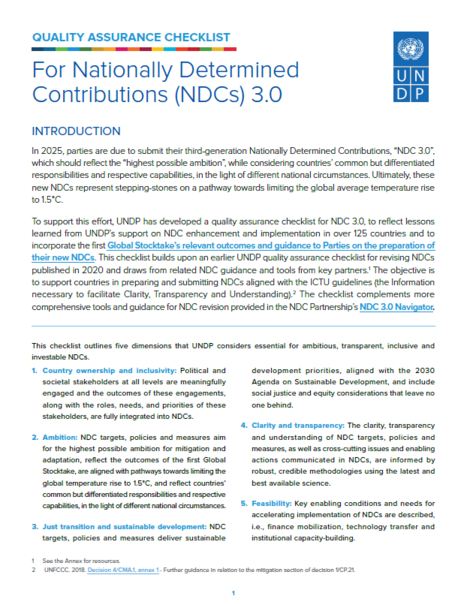As the climate crisis intensifies, time is running out to take swift and decisive action to cut down our greenhouse gas emissions as much as possible.
But the transition to low-carbon economies can have undesired consequences such as higher costs of living, job displacement and loss of income, or increased energy and food insecurity. Moreover, it risks widening the socio-economic divide between developed and developing nations.
On the other hand, evidence shows that, if managed well, the transition can be a powerful driver in creating green jobs, social justice and eradicating poverty.
This is why we need to understand the socioeconomics of climate action through an equity and justice lens. While we unequivocally need bold and ambitious climate action to limit global warming to 1.5°C, we also have to understand the impacts of this transition and make sure that we are minimizing the losses and maximizing the benefits.
This is the backbone of just transition: ensuring that every person, society and country benefits from the opportunities presented by constructing future economies in line with the 1.5°C goal.
The preamble of the Paris Agreement underscores the close links between climate action, sustainable development, and a just transition of the workforce, with decent work and quality jobs for all. At COP28, a dedicated work programme on just transition was established under the United Nations Framework Convention on Climate Change (UNFCCC) to ensure the integration of just transition approaches in Nationally Determined Contributions (NDCs).
Under the Climate Promise, UNDP has been working to support over 50 countries and territories on integrating a just and equitable transition of their economies into their short- and long-term climate plans. This work revolves around four key entry points:
- Developing transition impact assessments
- Engaging with stakeholders through social dialogues
- Providing institutional and policy support, as well as capacity-building; and
- Securing finance
Currently, we work with countries to assess transition impacts, identify opportunities and build consensus among stakeholders. Moreover, our work on advancing just transition approaches also extends to engagement in key global policy processes such as UNFCCC and the G20.





